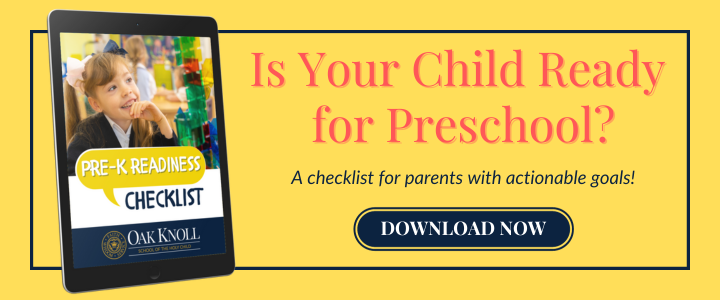When you ask your preschooler a question, do they hang on your every word? Most parents would say, “definitely not!” Preschoolers are taking in the world around them, and so much is new. Children are naturally curious, so it can be easy to get distracted sometimes. Yet, cultivating strong listening skills plays a significant role in learning as well. According to Oxford Learning, “A student’s ability to actively listen has a major impact on building the communication skills needed both inside and outside of the classroom.” Listening is a skill that can be developed, but just like anything else, it takes time and practice to master.
Read more for ways younger children can practice their listening skills.
The Power of Play: Engage in Activities that Build Listening Skills
Through simple and fun activities you can do with your children, you can help foster learning, listening skills, and creativity in your child. Here are a few activities to try:
What do you hear? Wind? Birds? Cars? Leaves rustling? Make a list of everything you hear outside.
- Play a game of freeze dance.
Sharpen your child’s listening skills with a fun game of freeze dance. The game is straightforward. Dance when the music is playing, and freeze quickly when it stops. All you need to do is start and stop the music when they least expect it.
Grab a small opaque container and a few items that will make a distinct sound against the container (pennies, rice, bells, etc.). Place each item in the container and shake it. Let your little one listen and guess what’s inside each time.
Read to your Child
Spark a love of reading at an early age. Spending just a few minutes each day reading to your child will help them build crucial listening skills and their imaginations, too! A great way to incorporate reading into each day is reading to your child at bedtime, simultaneously promoting listening skills and healthy sleeping habits. According to the National Institute for Literacy, “asking children to recall (checking their listening comprehension as well as memory), predict, speculate, describe, and ask questions” about what you’re reading together will aid in “language development opportunities from shared reading.” Reading aloud to your child provides an opportunity for them to enjoy listening to and being with you, to get them thinking creatively, and gaining a deeper understanding of spoken language.
Model Listening
According to the Social Learning Theory, people learn (especially young children) by watching others. Kids imitate the behavior they see from you. Thus, it is essential to model the listening behavior you want to see in your child. When talking to your child, give them your full attention, make eye contact, come down to their level, and show that you are listening and interested in what they are saying. Before you know it, they will do the same for you.








Comments
No comments yet. Leave yours below!